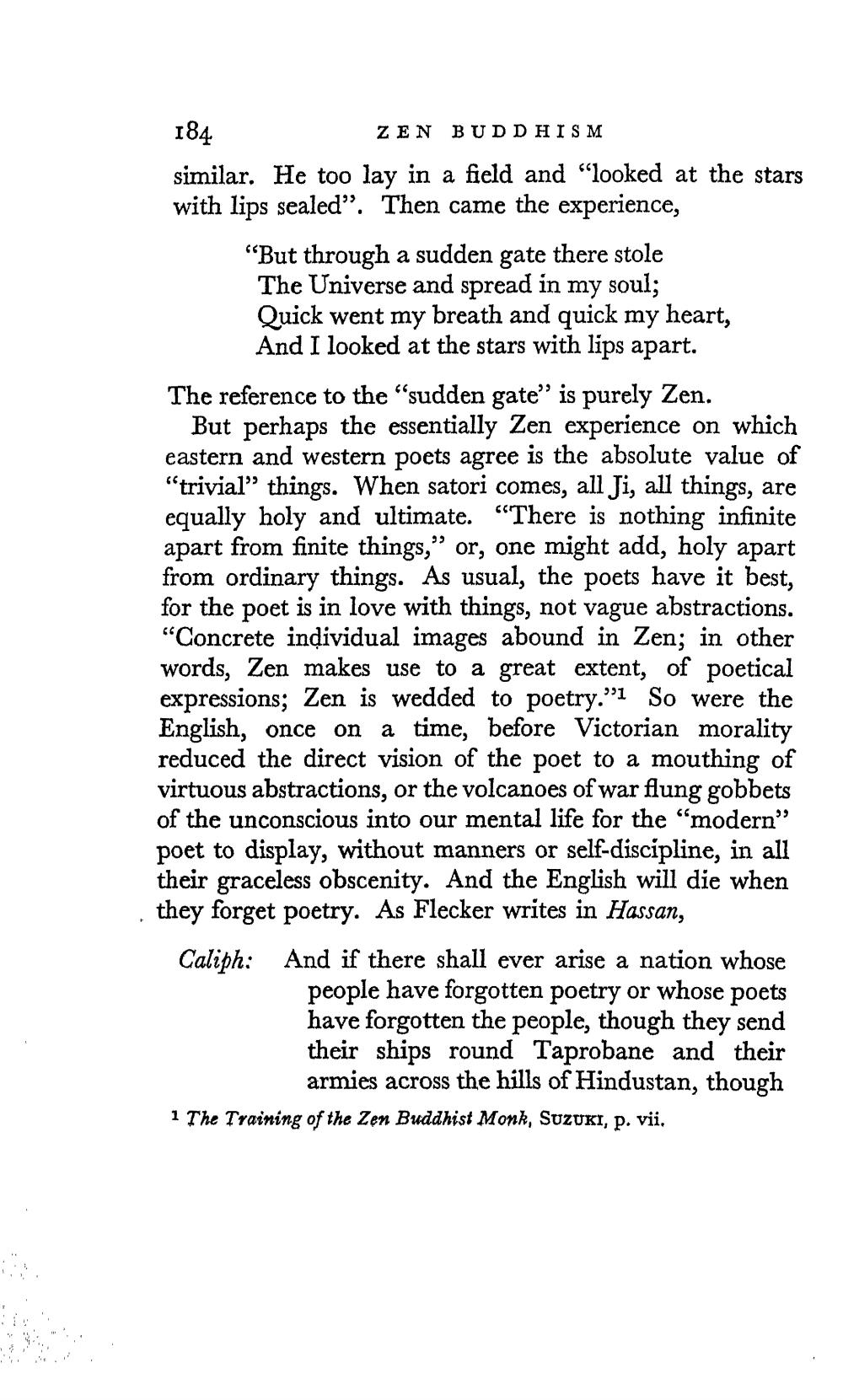________________
184
ZEN BUDDHISM similar. He too lay in a field and "looked at the stars with lips sealed". Then came the experience,
“But through a sudden gate there stole The Universe and spread in my soul; Quick went my breath and quick my heart,
And I looked at the stars with lips apart. The reference to the sudden gate” is purely Zen.
But perhaps the essentially Zen experience on which eastern and western poets agree is the absolute value of "trivial” things. When satori comes, all Ji, all things, are equally holy and ultimate. “There is nothing infinite apart from finite things," or, one might add, holy apart from ordinary things. As usual, the poets have it best, for the poet is in love with things, not vague abstractions. “Concrete individual images abound in Zen; in other words, Zen makes use to a great extent, of poetical expressions; Zen is wedded to poetry.". So were the English, once on a time, before Victorian morality reduced the direct vision of the poet to a mouthing of virtuous abstractions, or the volcanoes of war flung gobbets of the unconscious into our mental life for the "modern" poet to display, without manners or self-discipline, in all their graceless obscenity. And the English will die when they forget poetry. As Flecker writes in Hassan, Caliph: And if there shall ever arise a nation whose
people have forgotten poetry or whose poets have forgotten the people, though they send their ships round Taprobane and their
armies across the hills of Hindustan, though 1 The Training of the Zen Buddhist Monk, SUZUKI, P. vii.




